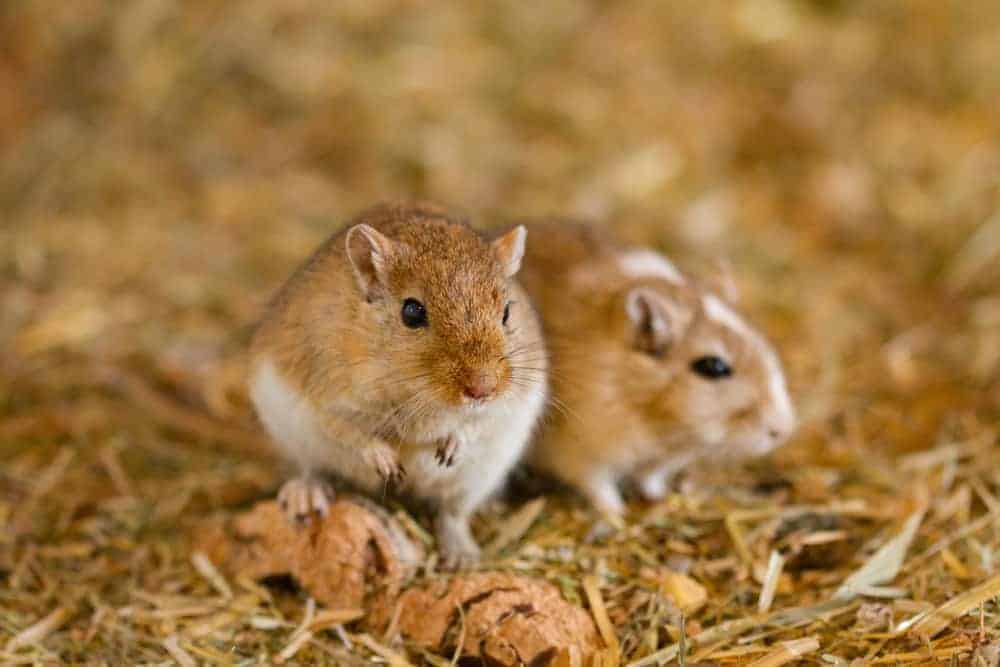Gerbils are popular pets due to their playful and curious nature. However, to ensure their happiness and well-being, it is crucial to provide them with a comfortable and suitable habitat. A cage that meets their needs is essential for their physical and mental health.
In this article, we will discuss the different types of cages suitable for gerbils and what features to look for when purchasing one.

1. The Ideal Size for a Gerbil Cage
The first and foremost factor to consider when buying a gerbil cage is its size. Gerbils are active creatures and need ample space to play, climb, and burrow. The minimum cage size recommended for a pair of gerbils is 20 x 12 inches of floor space and at least 12 inches in height.
2. Types of Cages
There are various types of cages available for gerbils, each with its pros and cons.
2.1 Glass Aquariums
Glass aquariums are popular among gerbil owners due to their spaciousness, durability, and ease of cleaning. They also provide an unobstructed view of the gerbils. However, aquariums can trap heat, making it challenging to regulate the temperature inside.
2.2 Wire Cages
Wire cages are another popular option for gerbil housing. They offer excellent ventilation and allow for easy hanging of toys and accessories. However, they can be challenging to clean, and gerbils may chew on the wires, causing injury.
2.3 Modular Plastic Cages
Modular plastic cages are becoming increasingly popular for gerbil housing. They are lightweight, easy to clean, and provide ample ventilation. They also allow for customization and expansion as the gerbils grow.
However, they can be expensive and may not be as durable as other options.
3. Features to Look for in a Gerbil Cage
When purchasing a gerbil cage, certain features are essential to ensure your pet’s comfort and safety.
3.1 Bedding
Gerbils love to burrow and nest, so it is crucial to provide them with suitable bedding. Bedding should be dust-free, absorbent, and non-toxic. Aspen shavings and paper-based bedding are good options.
3.2 Hideouts
Gerbils need hideouts to feel safe and secure. Hideouts can be anything from a simple cardboard box to a complex wooden structure. Ensure that the hideouts are big enough for the gerbils to move around comfortably and have multiple entry and exit points.
3.3 Exercise Equipment
Gerbils are active creatures and need plenty of exercise to stay healthy. Exercise equipment, such as wheels and tunnels, should be included in their cage. The wheel should be solid and free of wires to prevent injuries.
3.4 Food and Water Containers
Food and water containers should be provided in the cage. Water containers should be sturdy and easy to clean, while food containers should be non-toxic and heavy enough to prevent tipping.
4. Tips for Maintaining a Gerbil Cage
Keeping a gerbil cage clean and well-maintained is essential for their health and well-being. Here are some tips for maintaining a gerbil cage:
4.1 Spot Clean Daily
Spot cleaning the cage daily will help maintain cleanliness and prevent odor buildup. Remove any wet or soiled bedding, uneaten food, and feces.
4.2 Deep Clean Weekly
A deep clean should be done weekly, which involves removing all accessories and bedding, washing them thoroughly, and cleaning the cage with a pet-safe disinfectant.
4.3 Provide a Safe Environment
Gerbils are curious creatures and love to explore their surroundings. It is crucial to ensure that the cage is in a safe environment and away from hazards such as direct sunlight, drafts, and other pets.
4.4 Offer Enrichment
Enrichment is essential to keep gerbils mentally stimulated and prevent boredom. Offer toys, tunnels, and other accessories to provide them with a variety of activities to keep them engaged.
Conclusion
In conclusion, providing a suitable and comfortable habitat for your gerbils is essential for their physical and mental well-being. When selecting a cage, consider the size, type, and features that will provide the best environment for your pet.
Maintaining a clean and safe environment, offering enrichment, and providing proper nutrition will ensure a happy and healthy life for your gerbil.
FAQs
Can I use cedar bedding for my gerbils?
Cedar bedding should be avoided as it can be harmful to gerbils’ respiratory systems. Instead, use non-toxic bedding such as aspen shavings or paper-based bedding.
Do gerbils need a wheel in their cage?
Yes, gerbils need a solid wheel in their cage to provide exercise and mental stimulation. Ensure that the wheel is free of wires to prevent injuries.
How often should I clean my gerbil’s cage?
Spot cleaning should be done daily, and a deep clean should be done weekly to maintain cleanliness and prevent odor buildup.
Can gerbils live in pairs?
Yes, gerbils are social creatures and should be kept in pairs or groups to prevent loneliness and promote mental well-being.
What temperature range is suitable for gerbils?
Gerbils thrive in a temperature range of 65-75 degrees Fahrenheit. Keep their cage away from direct sunlight and drafts to prevent temperature fluctuations.